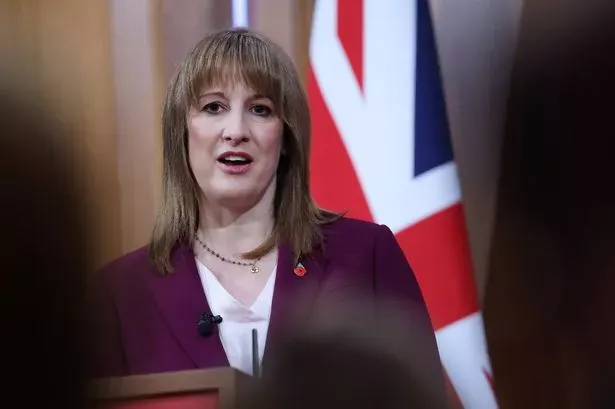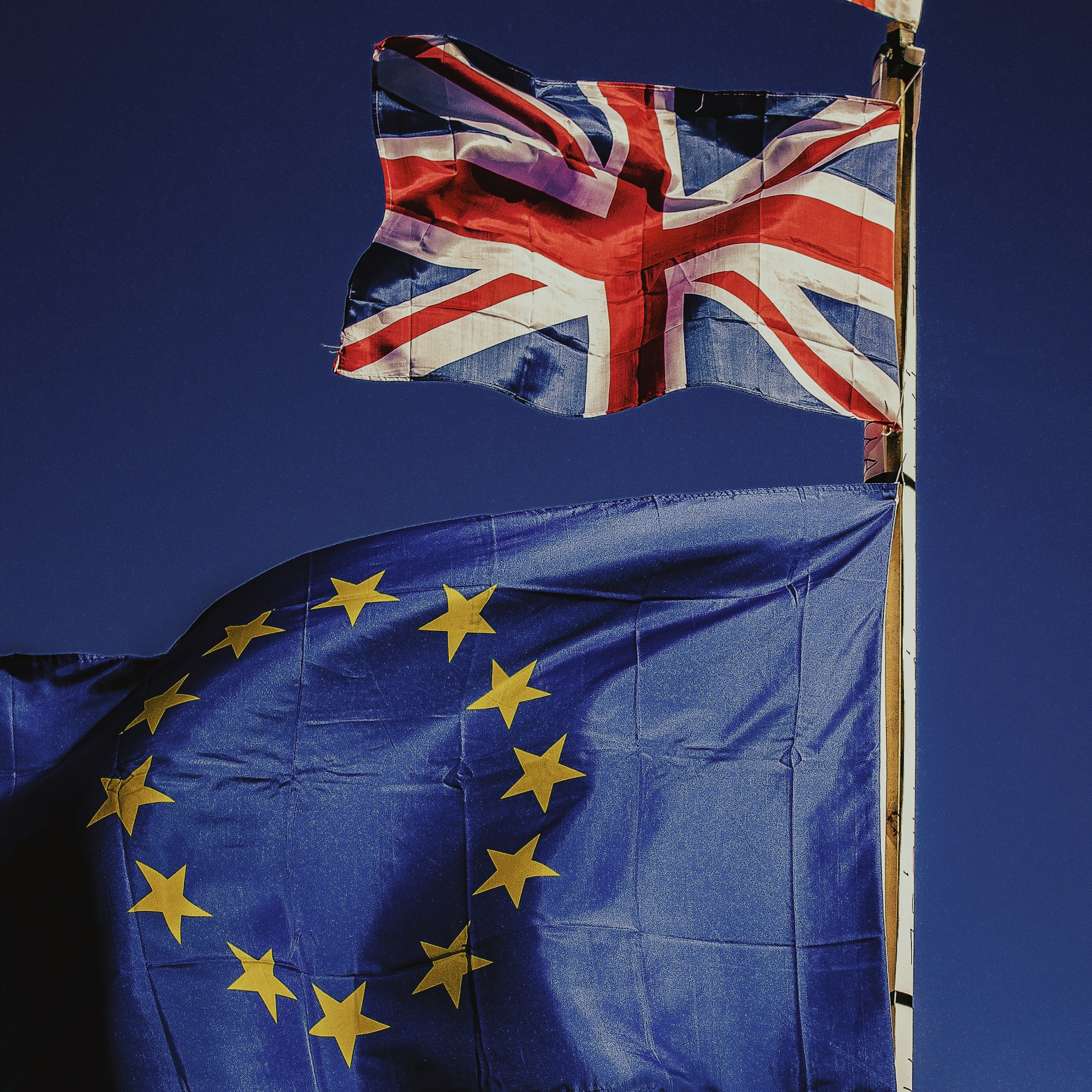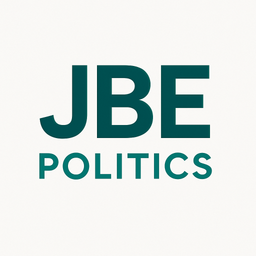Why Rachel Reeves' 2025 Labour Budget may have saved her job!
Reeves hasn’t yet delivered a full ‘tax wealth, not work’ overhaul, but this Budget marks meaningful progress, shifting the burden upward and taking serious steps toward a fairer, more modern tax system.

Tomorrow’s newspaper and television headlines will undoubtedly sensationalise this Budget as yet another round of “tax raids,” “theft,” or “punishment for aspiration.” They will seize on the politics of numbers, the narrowest reading of who pays what, and the most dramatic language the tabloids can summon.
But cut through the noise, and a more grounded picture emerges.
Last year, Rachel Reeves balanced the books by taxing the wealthiest, but simultaneously stifled growth with the hike in employers’ National Insurance, a policy that irritated business leaders and handed the Conservatives an attack line they used mercilessly. This year, the Chancellor faced a fiscal hole made worse by flatlining productivity, the ongoing drag of Brexit, and the shockwaves of President Trump’s tariffs.
Budget day itself opened chaotically: a leak from the Office for Budget Responsibility sent bond markets into a brief panic, fearing an uncosted giveaway or a fiscal misstep. Yet within hours, markets had stabilised, and by the close, they had reacted positively to a package of modest tax rises totalling £26 billion, which the OBR says largely fills the growth-shaped gap in the nation’s finances.
Reeves may not have produced a revolutionary Budget that addresses the deep inequality in neoliberal Britain, but she may have delivered a credible one; a Labour budget in a tricky economic landscape. And in a political moment defined by mistrust and cynicism, credibility counts for more than rhetoric.
Watch the Budget full
Taxes Raised and Savings Made
This budget extends Reeves’ mantra of her 2024 Budget: those with the broadest shoulders should bear the heaviest burden to plug the gap in the public finances.
The centerpiece is the new high-value property levy, effectively an additional council-tax banding for homes over £2 million and a higher tier for those over £5 million. Council tax has long been structurally outdated, still tied to 1990s valuations, and wildly regressive. Updating it is politically explosive, yet economically overdue. It shifts the burden upward, where the wealth is, rather than squeezing ordinary earners and SME's yet again.
Alongside this, Reeves has chosen to raise duties on online gambling, a move former Chancellor Gordon Brown has advocated for years. It’s a policy that tackles inequality from another angle: gambling harm disproportionately affects those living precarious, insecure lives. Increasing taxes here is not just revenue-raising, it is moral signalling about the social cost of an industry built on addiction.
The Chancellor pairs these tax rises with a claimed £4.9 billion in “efficiency savings” across government. These include scrapping Police and Crime Commissioners, a reform projected to save around £4.7 billion over several years, and trimming back-office spending across Whitehall. But these “waste-cutting” savings deserve some caution. Efficiency drives almost always sound easier than they prove to be. A target of £4.9 billion relies on sustained implementation and may conceal difficult squeezes on departmental budgets. Reeves insists no frontline services will be cut, and perhaps they won’t, but the line between “waste” and “resources” often blurs in practice. Still, even sceptics concede this is a more honest attempt at balancing the books than unfunded pledges or magical thinking.
The Political Headaches for Labour
Beyond the headlines, some policies in this Budget will provoke real and legitimate irritation among voters.
Freezing income-tax thresholds until 2030 is a sharp reversal. Reeves had previously criticised the Tories for freezing thresholds until 2028, calling it a “stealth tax”, and last year she promised to raise them. To walk that back now is awkward. The Opposition will shout “U-turn,” and they won’t be entirely wrong. But the backlash will depend on how Labour do party politics. Reeves floated raising income tax itself, received a furious reaction, and backed down. Freezing thresholds is less painful than explicitly hiking rates, and because Labour didn’t pledge the freeze in their manifesto, it skirts the accusation of a direct breach. It is politically messy, but survivable.
The new EV road charge, around 3p per mile or roughly £255 a year for an 8,500-mile driver, will also frustrate people who were told electric vehicles meant escaping road tax altogether. Critics will argue this impedes the transition to green transport, and they have a point. It sits uneasily with Labour’s clean-energy mission. But fiscal policy must meet reality, not ideals. People will complain, then, as with most pragmatic taxes, they will get over it.
But the uncomfortable truth is that if everyone switches to EVs, the current tax base collapses. Roads still need to be funded. Potholes still need filling. Infrastructure still needs building. And yes, even roundabouts vandalised by the far-right still need repainting.
Spending: A Glimpse of Labour’s Lost Vision
Where this Budget truly shifts gear is in its spending priorities — particularly for children and the next generation of working people.
Here, Reeves did something Keir Starmer has struggled to do for years: she articulated a meaningful vision of what Labour stands for. She spoke movingly about state schools, recalling her own time working from a portacabin in the 1990s because of Thatcher-era cuts. She framed a mission not around technocratic management, but around childhood, opportunity, fairness, and dignity, values that used to define Labour before the party veered into managerial caution and refugee-bashing triangulation.
The most significant policy, morally and politically, is the abolition of the two-child benefit cap, "fully funded and fully costed" through the levy on Gambling and Council Tax. The OBR estimates this will lift around 560,000 children out of poverty. No fiscal footnote, no tax tweak, no growth projection comes close to matching that single statistic in moral weight.
For the first time since entering office, this government showed something like a beating heart. Reeves did not just balance numbers; she rebalanced priorities. Labour showed the opposition parties in Reform UK and the Conservatives that young people matter, and reforming education, and how we invest in young people will determine our future.
Despite all the noise that will be made by the tabloids, this may be remembered as the year Rachel Reeves lifted over half a million children out of poverty, undoing one of the harshest welfare policies of the last decade. We have questioned this Labour government’s competence, often rightly. We still must. But today, Reeves delivered something rare in British politics: a Budget that is economically grounded, morally coherent, and unmistakably Labour.


